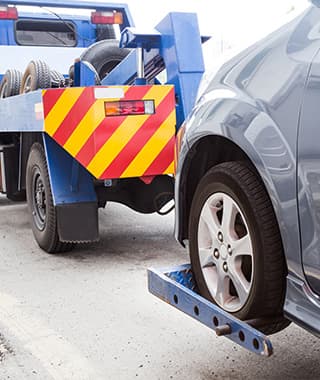If you have been convicted of a DUI in the state of Florida, your vehicle must be impounded or immobilized for 10 days. This is for the first offense. The immobilization period goes to 30 and 90 days for second and third offenses.
Speedie Recovery offers DUI immobilization as a safer, convenient, and more affordable option than having your vehicle impounded.
Disclaimer
Speedie Recovery complies with Florida State Statutes 316.193 (outlined below) in providing DUI Immobilizations:
(13) If personnel of the circuit court or the sheriff do not immobilize vehicles, only immobilization agencies that meet the conditions of this subsection shall immobilize vehicles in that judicial circuit.
(a) The immobilization agency responsible for immobilizing vehicles in that judicial circuit shall be subject to strict compliance with all of the following conditions and restrictions:
1. Any immobilization agency engaged in the business of immobilizing vehicles shall:
a. Have a class “R” license issued pursuant to part IV of chapter 493;
b. Have at least 3 years of verifiable experience in immobilizing vehicles; and
c. Maintain accurate and complete records of all payments for the immobilization, copies of all documents pertaining to the court’s order of impoundment or immobilization, and any other documents relevant to each immobilization. Such records must be maintained by the immobilization agency for at least 3 years.
2. The person who immobilizes a vehicle must never have been convicted of any felony or of driving or boating under the influence of alcohol or a controlled substance in the last 3 years.
(b) A person who violates paragraph (a) commits a misdemeanor of the first degree, punishable as provided in s. 775.082 or s. 775.083.
(c) Any immobilization agency who is aggrieved by a person’s violation of paragraph (a) may bring a civil action against the person who violated paragraph (a) seeking injunctive relief, damages, reasonable attorney’s fees and costs, and any other remedy available at law or in equity as may be necessary to enforce this subsection. In any action to enforce this subsection, establishment of a violation of paragraph (a) shall conclusively establish a clear legal right to injunctive relief, that irreparable harm will be caused if an injunction does not issue, that no adequate remedy at law exists, and that public policy favors issuance of injunctive relief.
(14) As used in this chapter, the term:
(a) “Immobilization,” “immobilizing,” or “immobilize” means the act of installing a vehicle antitheft device on the steering wheel of a vehicle, the act of placing a tire lock or wheel clamp on a vehicle, or a governmental agency’s act of taking physical possession of the license tag and vehicle registration rendering a vehicle legally inoperable to prevent any person from operating the vehicle pursuant to an order of impoundment or immobilization under subsection (6).
(b) “Immobilization agency” or “immobilization agencies” means any firm, company, agency, organization, partnership, corporation, association, trust, or other business entity of any kind whatsoever that meets all of the conditions of subsection (13).
(c) “Impoundment,” “impounding,” or “impound” means the act of storing a vehicle at a storage facility pursuant to an order of impoundment or immobilization under subsection (6) where the person impounding the vehicle exercises control, supervision, and responsibility over the vehicle.
(d) “Person” means any individual, firm, company, agency, organization, partnership, corporation, association, trust, or other business entity of any kind whatsoever.









